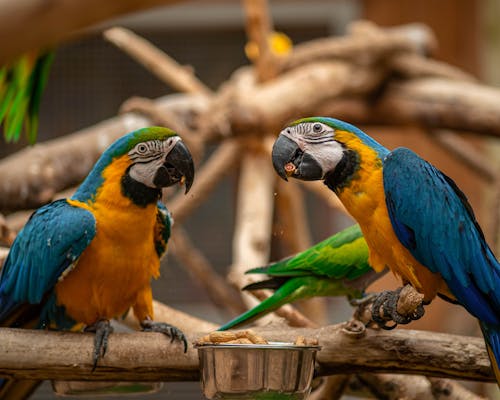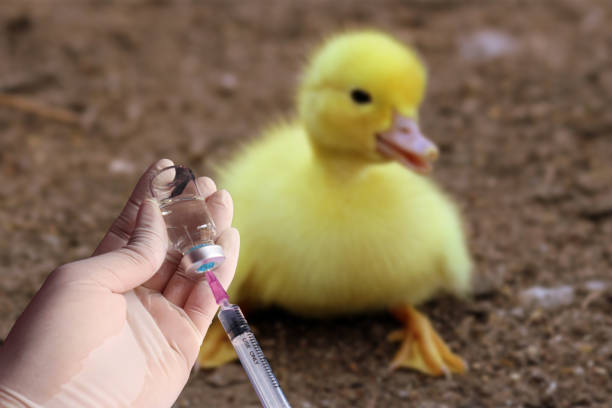Do Pet Birds Need Vaccines? A Comprehensive Guide
Of course, pet birds provide joy, color, and music in thousands of homes, and are very much loved companions. But, like other pets, they may experience health problems
Leading bird owners to ask: Do pet birds require vaccines?
Unlike dogs and cats, for which routine vaccination is common, the scenario with birds is more complicated. Not all pet birds should be vaccinated, but there are important situations where it is necessary.
This article discusses why birds need vaccines, what types are available, and how to keep your feathered friend healthy.

Why It’s Not Routine to Vaccinate Pet Birds
Bird immune systems, in contrast to mammals, differ by species. Dogs and cats are often vaccinated against diseases such as rabies or distemper, but birds with different risks don’t always need them.
The risk of exposure to infectious diseases is low for most pet birds, especially those kept indoors, so widespread vaccination is not needed.
However, birds kept in breeding, aviaries, or who are often in contact with other birds, may need protection from some of the contagious diseases. That’s where vaccines come in.
Common Vaccines for Pet Birds
While there aren’t a ton of vaccines for pet birds, there are some that are important for certain conditions. Here are the main vaccines that are available:
Polyomavirus Vaccine
Polyomavirus is a deadly viral disease mainly seen in young parrots, budgerigars, and other psittacine birds. It may also lead to sudden death, impaired growth or developmental abnormalities.
Who Needs It? Birds at breeding facilities, aviaries or pet shops.
Efficacy:
Vaccination has shown to have protective effects against infection, particularly in chicks.
Administration:
Two doses are usually given, followed by yearly boosters.
Pacheco’s Disease Vaccine:
Pacheco’s disease is known to be caused by a herpesvirus that can cause sudden death in parrots without premonitory signs. It can spread quickly in aviary settings.
Who Needs It? Multi-bird surroundings, such as for birds in breeding programs.
Effectiveness:
Lowers the odds of an outbreak, not a failsafe.
Administration:
Injected, usually in settings where there is high risk of exposure:
Psittacosis (Avian Chlamydiosis) Vaccine (Experimental in Certain Areas)
Psittacosis (parrot fever) is a bacterial infection caused by Chlamydia psittaci. (Birds and humans. (zoonotic disease)) Vaccines are scarce, but good treatment and prevention are key.
Who Needs It? Birds in aviaries or showing respiratory signs in endemic areas.
Effectiveness:
Vaccines are experimental, leading to an emphasis on hygiene and early treatment.
Consequences for the Necessity of Vaccination
There are several factors that dictate if your pet bird should be vaccinated:
Species of Bird
Some species, including parrots and cockatiels, are particularly at risk for some diseases, including polyomavirus or Pacheco’s disease. In case of small passerines such as canaries or finches, rarely vaccines are needed.
Living Environment
Birds housed in large aviaries or breed when facilities are at risk of exposure to these contagious diseases. In contrast, a single indoor pet bird that may have had limited contact with other birds is at very little risk.
Travel and Exposure
More frequent flyers and birds visiting auctions, expos, or avian boarding facilities may be at increased risk and benefit from vaccine administration.
Breeding Situations
Breeders also vaccinate their birds to limit outbreaks of disease, especially in young or immunocompromised birds.
Preventive Care:
Alternatives to Vaccination
For most pet birds, preventive care outweighs vaccination. Maintaining/Ensuring good health involves:
Nutrition:
Eating healthfully supports the immune system and minimizes susceptibility to illness.
Bioremediation:
By cleaning their cages regularly, as well as their food and water dishes, we reduce their chances of being exposed to pathogenic bacteria.
Quarantine New Birds:
Always, always, always quarantine new birds for a minimum of 30 days before being around your other pets (or other new pets) to prevent the spread of disease!
Importantly, Regular veterinary check-ups:
Taking your bird to an avian vet regularly can help catch potential problems before they become serious.

Conclusion
Most pet birds do not require routine vaccination, although certain conditions may call for it. Birds involved in breeding programs or in aviaries, or those that live around other birds, have a larger risk and can benefit from vaccines against such diseases as polyomavirus and Pacheco’s disease.
But for most pet birds, the most effective treatments are proper care, feeding, hygiene, and routine veterinary checks. Always check with your avian vet to determine the right health regimen for your feathered friends.
Identifying your pet bird's requirements sets you on the perfect path to a long, healthy, and happy life bursting with chirps and love.
